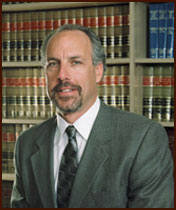A power of attorney can be a very crucial document for residents of Southfield or Farmington Hills, Michigan but one thing a power of attorney cannot do is take a person’s assets once they are deceased.
When the grantor (someone who conveys or transfers ownership of property) of the power of attorney passes on, the power of attorney document becomes invalid. Any separate powers of attorney that the decedent (the person who dies) may have implemented concerning financial matters, such as bank accounts, also become ineffective when the decedent dies.
Any time assets and heirs come into play, family members and loved ones of the decedent will need to consult a probate lawyer in Southfield or Farmington Hills, Michigan as the probate process is nearly inevitable. Assets owned solely by the decedent must go through the probate process, either according to the decedent’s will or the intestacy laws, which apply if no will exists.
Any and all assets owned by the decedent freeze upon their death until an executor of his or her estate is named. There are some exceptions, like if an estate is desperately in need of funds and there is no time to wait for an executor to be selected.
Those who are estate planning in Farmington Hills or Southfield, MI should know that the future executor of the estate and anyone who had power of attorney while the decedent was still alive cannot access the assets of that person; they remain frozen under all circumstances. The only way they can be unfrozen is when an estate executor is appointed.
Michael Colton, an experienced estate planning attorney in Southfield or Farmington Hills, Michigan, would like to help guide those going through the probate or estate planning process in Michigan. To receive a free, no-obligation consultation, contact us now. Or, if you have any legal questions for our probate or estate planning specialists in Southfield or Farmington, Hills Michigan, give us a call at 248-324-0800!



